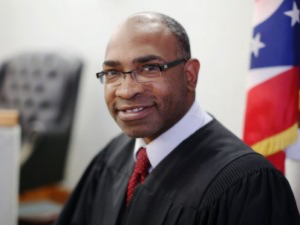An Antidote to Resisting Change: Connection

At MECC our daily work involves change. We witness many reactions to it, some embrace it and are drawn to it because of the uncertainty, the potential. There are other reactions that push it away and fear what it might bring. Almost certainly, the same question comes up: Is change really possible?
An editorial by Judge Fanon Rucker was published by Cincinnati.com in early July of this year. I encourage you to read the article in its entirety, but in short, Judge Rucker wrote about his concern with America’s lack of desire and ability to facilitate and drive change. With submission, he wrote, “I believe that I have come to the unfortunate conclusion that as a collective society we are not truly able to change, and, quite frankly, I do not really believe that we want to.” His sadness and reluctance to accept his own opinion mirrors the (same reluctance) of many, given our nation’s current climate, political and otherwise. Careful to note that the inability to change was not solely focused on race, Judge Rucker also mentions America’s historical stagnancy to race relations, gender equality, and political affiliation. It is not with pride or confidence that he writes his sad conclusion, but with historical proof and observations of timely world events.
My aunt, self-described as, “older-than-middle-aged-but-not-yet-old white woman who lives in a nice, almost entirely white, suburban community in greater Cincinnati,” wrote a heartfelt response to Judge Rucker’s editorial. The editorial touched her and she realized, bravely, that her reactions to the current race-relations in our community were complacent and filled with anxiety and fear, feeding Judge Rucker’s hypothesis that change can never happen.
In her personal letter, she added antidotes about her “ever growing family,” her background and ended with a plea for help. She wrote, “I’m sick of my complacency and want to change. Where do I start?” Through their correspondence they began to learn about each other, a possibility that would never had happened prior to his article. Judge Rucker’s response to my aunt reciprocated her personal vulnerability, as he described his childhood and background. As their correspondence continued, Judge Rucker invited my aunt and her ever growing family to his church in Bond Hill. And so, they went. Just as themselves, eager to make connections, eager to fight complacency. Both of them brave to face the uncertainty of change, the fear it often stirs, but greater than both of those, they trusted change itself.
The change was small, as it often is. But the experience of change is often about the small steps: the shift from impossibility to possibility, from isolation to connection. Judge Rucker and my aunt experienced a new connection to themselves and to each other. The simple act of reaching out can change hearts and minds. And so, we learn a little lesson from two people who asked the same question, “Is change really possible?”





Leave a Reply
Want to join the discussion?Feel free to contribute!